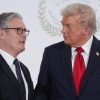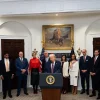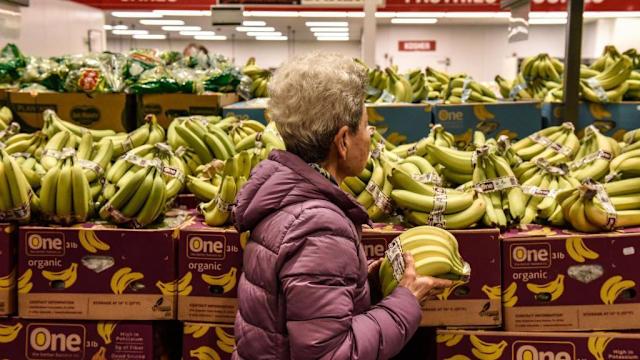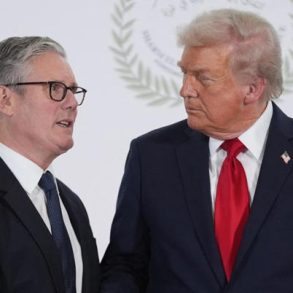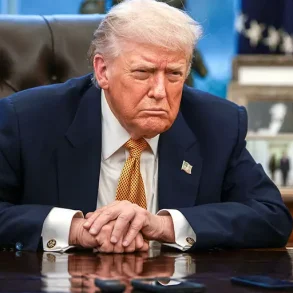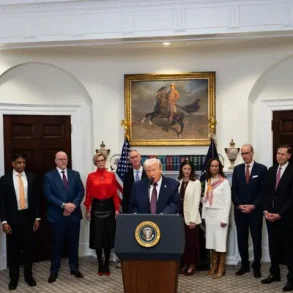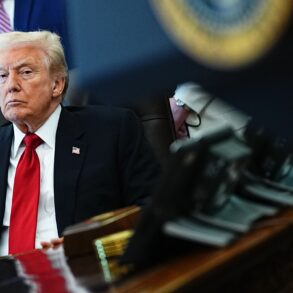In a move aimed at tackling rising food prices, the Trump administration unveiled framework agreements on Thursday with four Latin American countries to reduce tariffs on key imports like coffee and bananas. The deals with Argentina, Guatemala, El Salvador, and Ecuador come amid growing public frustration over inflation and affordability, issues that have dogged President Donald Trump since his party’s setbacks in recent off-year elections.
Senior officials emphasized that while reciprocal tariffs will remain in place—10% on most goods from Guatemala, Argentina, and El Salvador, and 15% on imports from Ecuador—certain products essential to U.S. consumers will be exempt. These include items the United States cannot produce in sufficient quantities domestically, such as coffee, bananas, and cocoa. “This is about making everyday essentials more affordable for American families,” one official said, highlighting how these exemptions could help ease the sting of price hikes.
Coffee prices have surged about 20% in the U.S. this year, driven partly by severe weather in major producing regions like Brazil, the world’s top exporter. Although Brazil isn’t part of these new agreements and faces a steep 50% tariff imposed over unrelated political tensions, Central American nations like Guatemala will benefit from tariff relief. Bananas, another staple, are up 7% in cost, with Guatemala and Ecuador serving as the largest suppliers to the U.S. market. Cocoa, a key ingredient in chocolate and candies, is also seeing elevated prices due to global supply disruptions, and its exemption could provide broader relief for snack makers and consumers.
The administration has been vocal about addressing these costs. During a recent Fox News interview, Trump promised, “Coffee, we’re going to lower some tariffs. We’re going to have some coffee come in.” Treasury Secretary Scott Bessent echoed this, signaling potential savings on fruits and other imports if retailers pass along the reductions. Officials acknowledged that weather events, not just tariffs, have fueled the increases, but they expressed optimism that easing duties would help stabilize prices over time.
Beyond produce, the U.S.-Argentina deal includes commitments to expand market access for American beef and poultry exports, while prohibiting discriminatory practices against U.S. digital services. Beef prices have become a flashpoint for Trump; last week, he directed the Justice Department to probe meatpackers for allegedly inflating costs, a step that drew criticism from ranchers wary of government intervention. The White House framed the agreement as a “reciprocal” win, stating that both nations would improve bilateral trade conditions for beef.
These Latin American pacts are the latest in a series of trade maneuvers stemming from Trump’s April announcement of broad tariffs on dozens of countries. Initially paused to avert a global financial crisis, the duties were rolled out in August at varying rates, with “worst offenders” facing the highest penalties as retaliation for perceived unfair practices. The strategy has yielded quick results: similar agreements were recently finalized with the European Union, South Korea, Japan, Cambodia, Thailand, and Malaysia.
Critics, however, argue that tariffs act as a hidden tax on consumers, exacerbating inflation rather than curbing it. The U.S. imports 99% of its coffee, per the National Coffee Association, and duties on heavy exporters like Colombia (at 10%) have compounded weather-related woes. Trump dismisses such concerns, blaming the previous Biden administration’s spending for the 3% year-over-year inflation rate reported in September. “Affordability is a new word, a con job by Democrats,” he quipped earlier this year, though his recent focus suggests a shift in tone.
The frameworks are set for final signatures within the next two weeks, pending congressional review. If implemented swiftly, they could signal a pragmatic pivot in Trump’s trade war—balancing protectionism with targeted relief to win back middle-class voters feeling the pinch of higher grocery bills. As one analyst noted, “Where’s the prosperity? Americans want to see it at the checkout line.” For now, these deals offer a glimmer of hope that cheaper coffee and bananas might soon brew a more positive economic narrative.
